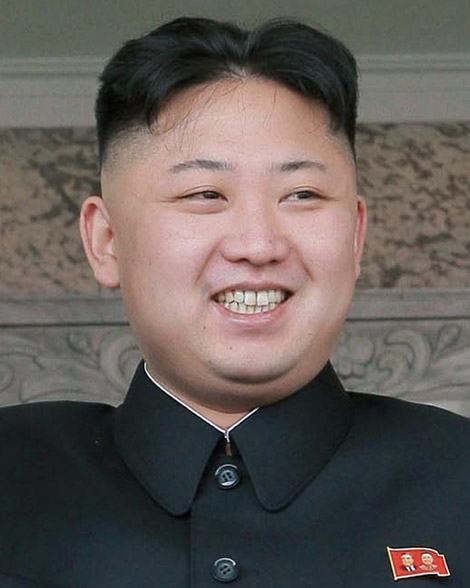 State media said the country had successfully carried out the
underground nuclear test, involving a new "miniaturised", device on
Tuesday.
State media said the country had successfully carried out the
underground nuclear test, involving a new "miniaturised", device on
Tuesday.UN Secretary-General Ban Ki-moon said it was "deplorable" that North Korea had defied international appeals to refrain from such provocative acts.
"The secretary-general condemns the underground nuclear weapon test conducted by [North Korea] today," Ban's spokesman Martin Nesirky said in a statement.
"It is a clear and grave violation of the relevant Security Council resolutions."
The Korean Central News Agency said the test was conducted in a safe manner and was aimed at coping with "outrageous" US hostility that "violently" undermines the North's peaceful, sovereign rights to launch satellites.
"The high-level nuclear test, unlike in the past, had more explosive power and involved a miniaturised and lighter atomic bomb and was staged safely and perfectly."
Powerful blast
The announcement that the detonated device was "miniaturised" suggests that North Korea has mastered the technically complex process of producing a warhead small enough to fit on a long-range missile.
The magnitude of the "explosion-like event" was roughly twice as large as that of a 2009 nuclear test in North Korea, the Comprehensive Nuclear-Test Ban Treaty Organisation, a group monitoring nuclear tests, said.
The UN Security Council is set to meet at 14:00 GMT on Tuesday for emergency consultations.
"The danger posed by North Korea's threatening activities warrants further swift and credible action by the international community," US President Barack Obama said in a statement.
"The United States will also continue to take steps necessary to defend ourselves and our allies."
NATO said the "irresponsible" nuclear test was a flagrant breach of UN resolutions and a grave threat to international security.
The UN Security Council last month voted to expand sanctions against Pyongyang in response to its December rocket launch that the North insists was a peaceful scientific mission.
Call for calm
China, whose backing of last month's Security Council decision came as a surprise to many observers, expressed "firm opposition" to the test, saying its ally had gone ahead with the blast "despite widespread opposition from the international community".
We strongly urge the DPRK [North Korea] to honour its commitment to denuclearisation, and not to take any actions which might worsen the situation," the foreign ministry said in a statement.
Al Jazeera's Marga Ortigas, reporting from Hong Kong, said China's relationship with North Korea might change under the new Chinese leadership due to take over in March.
"It may no longer tolerate what has become a bigger and bigger thorn in its side," she said.
"The new president, Xi Jinping, has made it very clear clear he intends to make relationships between China and the US better.
"He wants to redefine them and possibly find a way that they can move forward, working with each other."
Trade with China has enabled the impoverished North to survive for decades since the end of the Korean War.
Underground bunker
In neighbouring South Korea, President Lee Myung-bak held emergency meetings in an underground bunker in his office building.
"We have strengthened the readiness of our military by increasing the security alert level to level two," Defence Ministry spokesman Kim Min-seok said.
"We have also operated the South Korea-US joint surveillance platform to closely monitor North Korea's military movements."
Meanwhile Iran, hit by UN sanctions for its controversial nuclear programme that the West believes is aimed at developing nuclear weapons, called for the destruction of all atomic weapons after North Korea's test.
"We need to come to the point where no country has any nuclear weapons and at the same time all weapons of mass destruction and nuclear arms need to be destroyed," foreign ministry spokesman Ramin Mehmanparast said.
"At the same all countries should have the right to make use of nuclear activities for peaceful purposes."
Eventually North Korea and Iran mayl develop weapons past the level where sanctions and diplomacy is no longer an option. Nuclear technology makes those countries too much of a threat.
ReplyDelete(Rachel B)